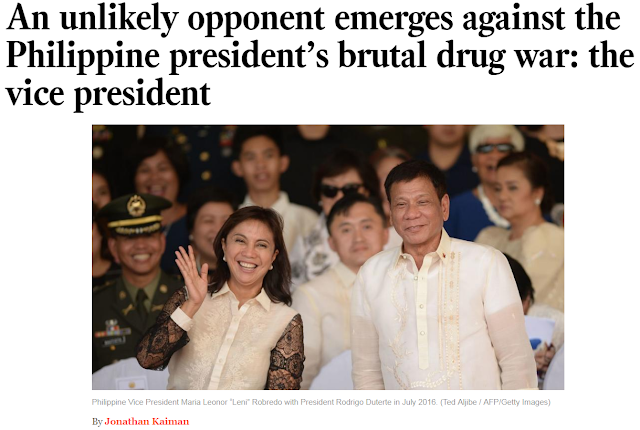Towards a More Intelligent Discourse
When arguing in social media, one intention has become prominent, that is, to prevail. We no longer engage in a discussion to learn, but only to be triumphant such that the other side is vanquished. The current opposition in the Philippines, with its bygone years of power, continues to tread the path of divisiveness and its belief of exclusively owning the truth. The past administration has managed to put in place a new curriculum for basic education, complete with the following lofty goal: "To create a functional basic education system that will produce productive and responsible citizens equipped with the essential competencies and skills for both life-long learning and employment.” The same law, Republic Act 10533, however, fails to mention how this desired outcome will be measured. Instead, the law mandates only a review of classroom shortages and other metrics that do not really measure nor gauge whether graduates of the basic education are indeed "productive and responsible and are equipped with essential competencies and skills for both life-long learning and employment". Witnessing such lack of an evidence-based approach in basic education, it is no longer suprising that the Philippines is a country whose policies and programs are divorced from the reality experienced by most of its citizens.
When an evidence-based approach is disregarded, facts become simply what we wish to be. In this climate, an intelligent discourse is impossible. We now only express what we think with the sole objective of showing that others are wrong. Our posts in social media on issues are now merely spawning division and not building a community where ideas are exchanged. This is quite problematic in Philippine society. The current administration of Duterte enjoys popular support. Populism, however, is not guaranteed to be good. There are indeed policies and programs in the current Philippine government that require criticisms. After all, DepEd's K to 12 still needs to be evaluated and monitored.
When discussions become mere contests for supremacy, searching for truth now takes a backseat to winning. And it does not help when it is really obvious that it is not truth that one is after but power. Jonathan Kaiman of the LA Times, wrote near the beginning of this year "An unlikely opponent emerges against the Philippine president’s brutal drug war: the vice president":
Kaiman, however, failed to see that for most Filipinos, the rise of Robredo as an opponent against Duterte's drug war is actually Robredo rising as Duterte's opponent. Opposition by Robredo is therefore deemed as a desire of the previous administration to return to power. Without a well-defined method of assessing DepEd's K to 12, I guess, in some sense, we maybe able to see if we, Filipinos, are indeed becoming more productive and responsible.
When an evidence-based approach is disregarded, facts become simply what we wish to be. In this climate, an intelligent discourse is impossible. We now only express what we think with the sole objective of showing that others are wrong. Our posts in social media on issues are now merely spawning division and not building a community where ideas are exchanged. This is quite problematic in Philippine society. The current administration of Duterte enjoys popular support. Populism, however, is not guaranteed to be good. There are indeed policies and programs in the current Philippine government that require criticisms. After all, DepEd's K to 12 still needs to be evaluated and monitored.
When discussions become mere contests for supremacy, searching for truth now takes a backseat to winning. And it does not help when it is really obvious that it is not truth that one is after but power. Jonathan Kaiman of the LA Times, wrote near the beginning of this year "An unlikely opponent emerges against the Philippine president’s brutal drug war: the vice president":
 |
| Above copied from the LA Times |
Comments
Post a Comment